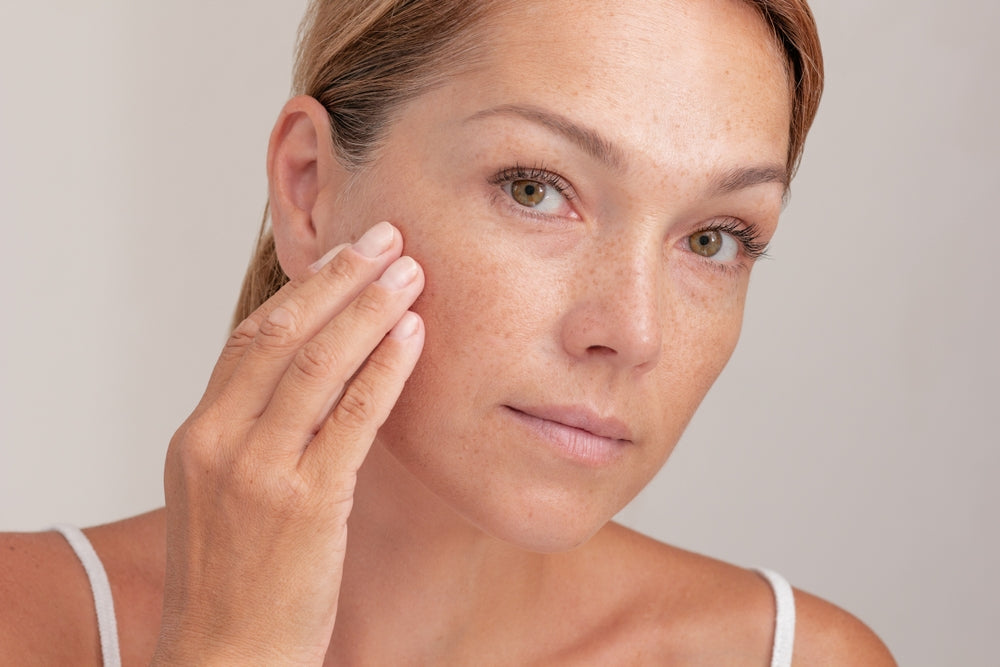You probably have heard about the importance of wearing sunscreen, both during a day out in the sun and even for everyday use. But do you know the differences between different types of sunscreens? With options for SPF and even the method of protecting your skin differing among many types of sunscreen, it’s helpful to know what’s effective and the best bet for your skin and budget.
How Does Sunscreen Work?
Sunscreen protects your skin from harmful ultraviolet (UV) rays that are emitted by the sun. There are two main types of UV light: UV-A and UV-B rays. UV-A rays have slightly longer wavelengths than UV-B rays, which penetrate deeper into the skin, leading to degradation in overall skin health and causing premature aging signs such as wrinkles, age spots, and poor skin elasticity. UV-B rays, on the other hand, contribute to tanning and, with too much unprotected exposure, sunburn.
A good sunscreen, whether chemical or mineral, creates a protective layer that reflects and absorbs the energy before it reaches your skin.
What is SPF?
SPF stands for Sun Protection Factor. It’s actually a mathematical formula for describing how “strong” a sunscreen is. The SPF of a particular sunscreen tells you how much longer your skin would take to redden when using the sunscreen compared to not wearing it at all. For example, an SPF 30 sunscreen means your skin takes about 30 times longer to burn than if you were unprotected.
It’s important to understand that a higher SPF does not mean complete or dramatically stronger protection. SPF 30 blocks about 97 percent of UVB rays, while SPF 50 blocks around 98 percent. That small difference can create a false sense of security, leading people to think they can stay out longer without reapplying. No sunscreen blocks 100 percent of UV rays, which is why proper application, using enough product, and reapplying consistently are more important than simply choosing the highest number on the label.
What is a Chemical Sunscreen?
Chemical sunscreens contain active ingredients that are known to absorb UV light and convert it into heat energy that easily dissipates from your skin.
Chemical sunscreens help increase the SPF value of some products and can be formulated into various types of products. They go on sheer, so they blend into many skin tones without a white cast. And, they are lightweight, making them suitable under makeup. It is important to note that some people with sensitive skin can experience irritation and discomfort from chemical sunscreens. If you have sensitive skin or aren’t sure if you are allergic to chemical sunscreens, it is important to do a patch test before applying a new product all over your face and body. It is also important to note that children under six months should not use chemical sunscreens. Choose a mineral sunscreen instead for babies under six months old.
What is a Mineral Sunscreen?
A mineral sunscreen takes a different approach than chemical sunscreens, by physically reflecting and scattering the UV rays away from the skin using either titanium oxide or zinc oxide. Mineral sunscreens are widely accepted as the first choice for sunscreen use, especially in the skincare community, since they rarely interfere with active skincare ingredients. Mineral sunscreens are generally non-irritating and are known to have skin-protectant properties.
Most mineral sunscreens are thicker in consistency and sometimes visible, leaving a white residue of the active ingredients on the skin. For some, this may mean applying a tinted makeup after application or using a facial sunscreen that is tinted. We love Defend & Balance SPF 50 Tinted Mineral Sunscreen for blendable coverage that is also water-resistant up to 40 minutes..
Mineral sunscreens formulated with zinc oxide and titanium dioxide are considered broad-spectrum, meaning they protect against all wavelengths of UV light.
Which is Better, Mineral or Chemical Sunscreen?
The bottom line is that mineral sunscreens can be used on a wider range of individuals, from those with more sensitive skin types to infants.. However, there is a place for chemical sunscreens, especially for those who may be allergic to the active ingredients in mineral sunscreen or who want a sheer, lightweight feel. Read on to learn more about each type and who they may benefit.
Who Should Use Mineral Sunscreen?
Mineral sunscreens use ingredients like zinc oxide or titanium dioxide to create a barrier on the skin and physically block UV rays. They are often preferred by people with sensitive or acne-prone skin, since mineral formulas are usually gentler. Many parents also choose mineral sunscreens for babies or young children with more sensitive skin. Furthermore, those who want immediate sun protection can benefit from this option, as mineral sunscreens work as soon as they are applied with no waiting period.
Who Should Use Chemical Sunscreen?
Chemical sunscreens use ingredients like homosalate, octinoxate, avobenzone, octisalate, and octocrylene to absorb UV rays and convert them into heat, which is then released from the skin. Individuals who want a lightweight, sheer finish that is easy to wear beneath makeup often opt for chemical sunscreens. Additionally, active individuals or swimmers can benefit from this option. It is important to remember that you will have to apply this type of sunscreen 15-20 minutes before sun exposure, as the chemical filter needs time to activate.
Tips for Sunscreen Use
A good sunscreen routine goes beyond just applying it once in the morning. Sunscreen naturally wears off throughout the day due to sweat, swimming, rubbing from clothing, or even just natural oil production, which means reapplication is essential to maintain consistent protection.
Professionals recommend reapplying about every two hours when you are outdoors, and even more often if you are in the water or exercising. It is also important to apply enough product in the first place, since using too little can significantly reduce the level of protection you are getting. Cover all exposed areas, including often-missed spots like the tops of the ears, back of the neck, and hands, and make sunscreen a regular part of your daily routine to keep your skin protected.
Our Recommended Sunscreens
Epicuren Discovery offers a full range of high-quality skincare products, including both mineral and chemical sunscreens. For those wanting a silky cream that delivers rich Brazilian Propolis and UV protection to your skin, our X-Treme Cream Propolis Sunscreen has an SPF of 45+ and offers sheer moisturizing coverage. Or for people who prefer a mineral-only sunscreen option, try our Zinc Oxide Perfecting Sunscreen SPF 27 that is lightweight and has the added benefits of skin brightening and antioxidant properties..
High-Quality Sun Care by Epicuren Discovery
Keeping your skin youthful and radiant-looking relies heavily on using the right products on a daily basis. Experience the benefits of our high-quality formulas by browsing our Sun Care products or by taking our Skin Quiz to find the products that are best for your unique skin type.





